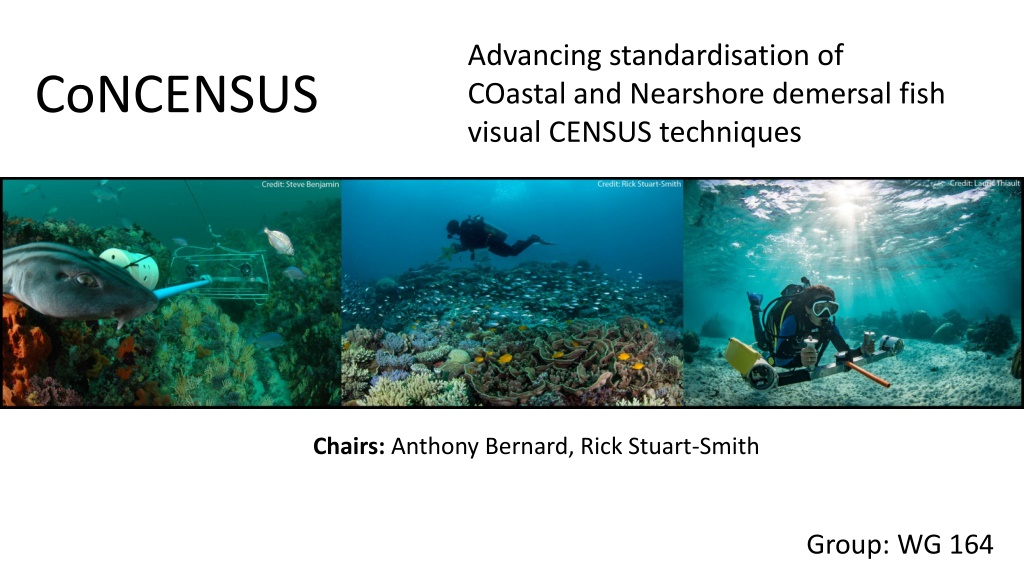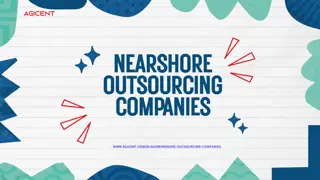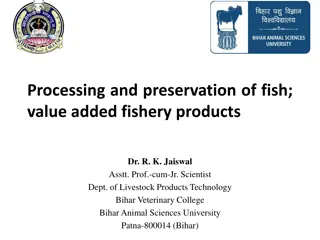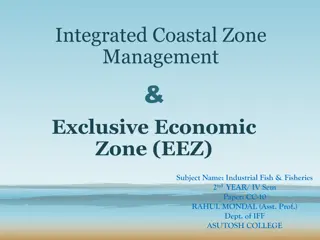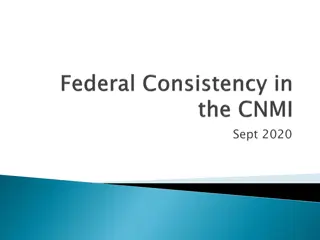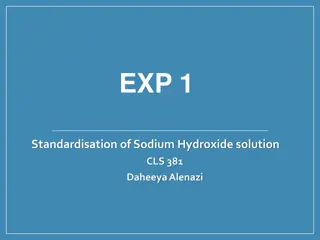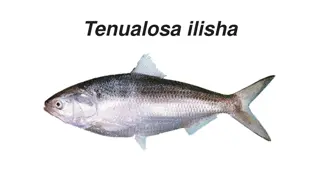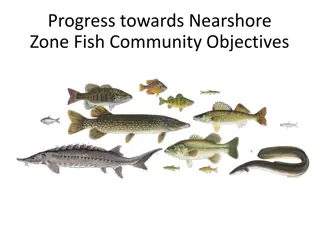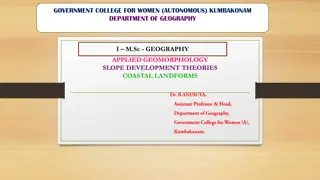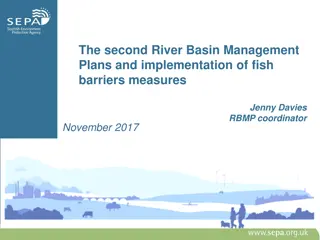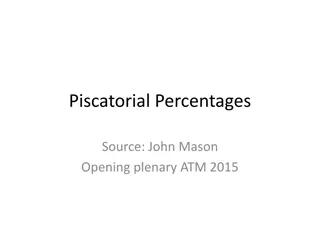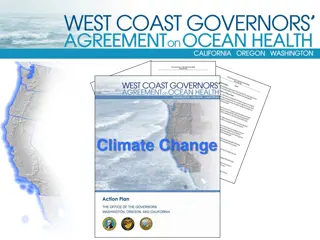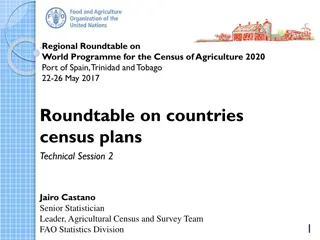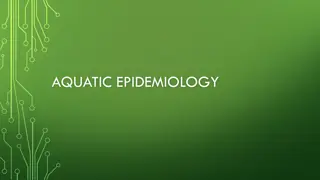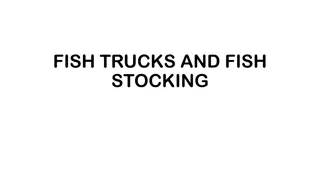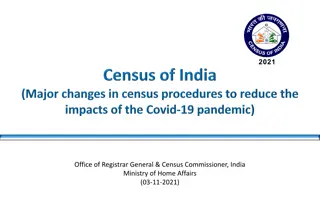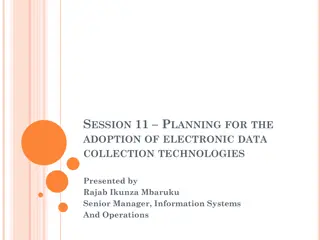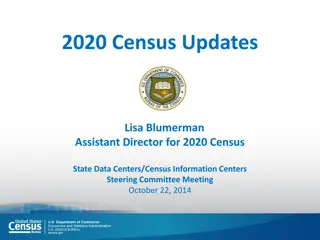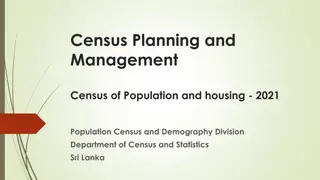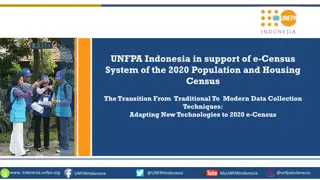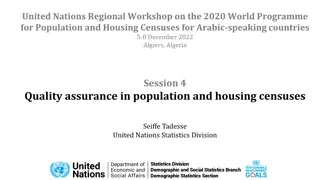Advancing Standardisation of Coastal and Nearshore Demersal Fish Visual Census Techniques (CoNCENSUS)
This project aims to improve the standardisation of visual census techniques for assessing coastal and nearshore demersal fish populations globally. The focus is on methodological comparison, best practices, data management, and future developments. Activities include securing funding, capacity building, and engaging with relevant stakeholders. Plans involve finalising workplans, compiling datasets, developing best practice guidelines, and initiating engagement with emerging techniques. The goal is to enhance data reliability and promote collaboration within the research community.
Download Presentation

Please find below an Image/Link to download the presentation.
The content on the website is provided AS IS for your information and personal use only. It may not be sold, licensed, or shared on other websites without obtaining consent from the author. Download presentation by click this link. If you encounter any issues during the download, it is possible that the publisher has removed the file from their server.
E N D
Presentation Transcript
Advancing standardisation of COastal and Nearshore demersal fish visual CENSUS techniques CoNCENSUS Chairs: Anthony Bernard, Rick Stuart-Smith Group: WG 164
Terms of Reference ToR 1: Methodological Comparison ToR 2: Best Practices Can data obtained from different visual census methods be used in conjunction to measure and report on the status of coastal and nearshore demersal fish assemblages at a global scale. Advance best practices and obtain community endorsement for visual census methods that ensure a common base level of data and metadata collection. Lead: Eva Maire, UK Lead: Ana Carolina Mazzuco, Brazil ToR 3: Data management ToR 4: Looking forward Develop protocols aligned with FAIR principles, and establish infrastructure and workflows for data to be published on OBIS. and implement data management Evaluate the potential of emerging and alternative research techniques and determine priority areas for engagement, capacity development and research to strengthen the global research network Lead: Peter Walsh, Australia Lead: Anthony Bernard, South Africa
Activities and highlights Report back to the Global Ocean Observing System (GOOS) Biology and Ecosystem (BioEco) panel. Secured funding to support early career researchers (1 x PhD, 1 x Postdoc) Secured funding to appoint a service provider to assist with the data management ToR Developed an interactive shared workspace and website for project management. Kickoff meeting (May 2022) Icebreaker to refine ToR, appoint ToR leads and build the workplan.
Capacity development: Implemented activities Planned activities Capacity building within the Working Group PhD student recruited and working on Working Group ToR Funding for a post-doc sourced, position still to be filled. Marine Megafauna Foundation (Mozambique) Namibian Nature Foundation Maldivian Marine Research Institute Centre for Marine Living Resources and Ecology (India) Focussed training activities No progress yet. Initial plan to draw on tools available from Working Group Members (REEF and RLS). Independent learning and self-development
Plans In person meeting at the International Temperate Reef Symposium (January 2023) ToR specific activities: ToR 1: Methodological Comparison ToR 3: Data management Finilise workplan Compile dataset and refine ToR research questions Draft a decision support framework paper to support visual census research Develop the draft data management system. Engage with OBIS to support ToR activities. Engage with GOOS and other relevant data repositories to align data management plans. ToR 2: Best Practices ToR 4: Looking forward Research landscape mapping to identify knowledge networks, gaps and agendas. Questionnaire survey better understand technique usage. Initiate engagement with emerging visual census techniques. Identify and develop relevant best-practice guidelines (TOR activity 2). Obtain community support and GOOS endorsement for the stereo-DOV best practices.
